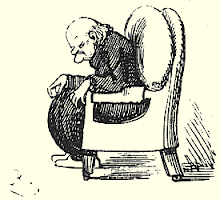I used to think I knew a lot. That should have been the first sign that I was stupid.
But it wasn’t. I didn’t realize that until I was much smarter.
Neither, apparently, did anybody else.
Friends have come to me for advice for as long as I can remember—and I can remember back a ways, to dispensing quasisophical advice to my friend Jared as I sat on the arm of his parents’ 2nd tier couch in their basement. I can remember having long, deep phone conversations with emotionally tortured friends as I sat behind my 1970s-era metal office desk, chatting on my black, oversized office telephone that I insisted on having because I liked how important it looked. I would have these important phone conversations with friends while sitting in a tufted leather office manager’s chair, up in my old bedroom.
It would have been a strange sight—were anybody watching. It’s a good thing they weren’t.
No, nobody was watching, but everybody, it seemed, was listening. People my age, and older, instinctively came to me with their problems, their troubles, their struggles, and their questions. For real—people asked ME questions. Me, not “Dear Apron.” The me boy person man thing. People told me things they may never have told anybody else, and, honestly, I don’t know why. Did I engender trust or confidence? If so, I don’t know how I do it.
Today, I get paid to listen to people tell me about their problems. They tell me they’re suicidal, or were. They tell me their paranoid delusions or their homicidal fantasies, and I write it all down in my reports, I pass some of it along to the nurses, and I swipe my badge and I go home, locking the door securely behind me.
They pay me to listen.
Today, in my capacity at work, I do much more listening and much less advising. My job isn’t to give advice, and I frequently tell patients that—usually after they blatantly come out and ask me for it. Would I advise them to do something moderate and judicious and appropriate? Sure I would, because I know what’s rational and what’s not*.
*Most of the time.
But that’s not important. That doesn’t matter. I am not a prophet on the mount. I am not Moses or Yaweh or some other mustachioed gray-head with a cane he refers to as a “staff.” Maybe they come to me because I wear glasses and tuck in my shirts and have reasonably well-kept hair. I don’t know why they trust me—my friends and my patients. Maybe it’s because I would never violate a trust. But they don’t know that. You never know if someone’s violated your trust until you find out about it, right?
By and large, the friends who so earnestly sought my counsel when I was young have gone away. They weren’t dramatic exits—most of them—they were more like melting snow or flaking paint just sort of… going away slowly and gradually until there was nothing left.
I hope it wasn’t something I said.
Lauren Soloy’s The Newest Gnome: A Quiet Adventure
11 months ago














Giving advice can be dangerous! You can really bugger up someones life if you set them in the wrong direction!
ReplyDelete